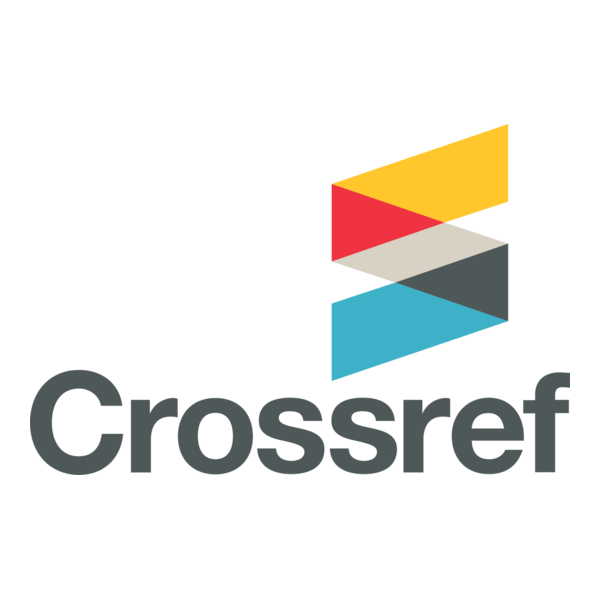Filtrirni mehurček: kako nadzorovati demokracijo v dobi informacijske družbe
DOI:
https://doi.org/10.37886/ip.2023.001Ključne besede:
filtrirni mehurček, internetno pravo, demokracija, zasebnost pri odločanju, družbeni medijiPovzetek
Raziskovalno vprašanje: Raziskava vodi k odgovoru na vprašanje: Ali filtrirni mehurčki izkrivljajo volilni proces tako, da kršijo pravico do svobodnih volitev?
Namen: Glavni cilj raziskave je pokazati, da informacijski mehurčki kršijo odločanje o zasebnosti, kar posledično vodi v kršitev pravilnosti volilnega postopka.
Metoda: Raziskovalna metodologija vključuje sistematičen pregled znanstvenih člankov in študij mednarodnih organizacij ter poročil.
Rezultati: Raziskava prikazuje učinke filtrskih mehurčkov na volilni proces. Zahvaljujoč temu lahko opazimo, da niso vse informacije enakomerno porazdeljene po internetu in nekatere informacije ne dosežejo prejemnikov. Glavni cilj raziskave je pokazati, da filtrirni mehurčki kršijo odločanje o zasebnosti, kar posledično vodi v kršitev pravilnosti volilnega postopka. Avtorica predstavi, zakaj bi morale države regulirati družbene medije na področju filtrskih mehurčkov in kakšne korake je treba sprejeti.
Organizacija: Razvoj informacijske družbe postavlja pred zakonodajalca nove izzive. Eden od njih je problem regulacije družbenih medijev in sorodnih orodij – vključno s filtrirnimi mehurčki. Članek predstavlja vpliv filtrirnih mehurčkov na volilni proces. Članek pregleduje dosedanje raziskave tega izziva – tako empirične kot doktrinarne.
Družba: Članek obravnava družbeno aktualno temo, to je manipulacija volilnega procesa. Primeri, preučeni na primerih nedavnih volitev v ZDA, Veliki Britaniji ali Braziliji, kažejo, da problem zadeva praktično vsak kotiček sveta. Rezultat študije je pokazati, da filtrirni mehurčki predstavljajo grožnjo demokraciji.
Izvirnost: Problem filtrirnih mehurčkov in njihov vpliv na volilni proces je še vedno neraziskan fenomen. V delu so analizirani primeri vpliva in nakazani koraki, ki jih je treba narediti, da se začne delo na področju urejanja tega pojava. Ta raziskava temelji na konceptu družbenega nadzora nad algoritmom družbenih medijev.
Omejitve/nadaljnje raziskave: Namen tega članka je prepoznati težave in pregledati rešitve. Raziskavo problema je treba dodatno utemeljiti na podlagi pravne in dejanske analize.
Literatura
Allcott H, Gentzkow M., Social Media and Fake News in the 2016 Election (2017), Stanford University, Journal of Economic Perspectives, Vol. 31, No. 2, 211-236. https://doi.org/10.1257/jep.31.2.211
Bader M. (2018), Disinformation and elections, Security and human rights 29, 24-35, doi: 10.1163/18750230-02901006
Bastos M, Mercea D, Baronchelli A. (2018) The geographic embedding of online echo chambers: Evidence from the Brexit campaign. PLoS One. 13(11):e0206841. https://doi:10.1371/journal.pone.0206841
Bok S. (1083), Secrets: on the ethics of concealment and revelation, Oxford.
Bond, R. M., Fariss, C. J., Jones, J. J., Kramer, A. D., Marlow, C., Settle, J. E., Fowler, J. H. (2012). A 61-million-person experiment in social influence and political mobilization. Nature,489(7415), 295-298 https://doi.org/10.1038/nature11421
Bradshaw S, Howard P.N., Kollanyi B., Neudert :-M (2020) Sourcing and Automation of Political News and Information over Social Media in the United States, 2016-2018, Political Communication, 37:2, 173-193, DOI: 10.1080/10584609.2019.1663322
Bruns A. (2019), Filter buble, Internet Policy Review vol.8 issue 4, https://doi.org/10.14763/2019.4.1426
Bruns A., Highfield T. (2016), Is Habermas on Twitter? Social media and the public sphere (in:) The Routledge companion to social media and politics., Enli G., Bruns A., Larsson A.O., Skogerbo E., Christensen C., London, 56-73;
Cela E. (2015) Social Media as a New Form of Public Sphere, European Journal of Social Sciences Education and Research 4(1), 195-200
Celeste E. (2018) Digital Constitutionalism: Mapping the Constitutional Response to Digital Technology’s Challenges, HIIG Discussion Paper Serier 2.,
Chadwick R. (2012) Encyclopedia of Applied Ethics (Second Edition), Cambridge
Committee of experts on Media Pluralism and Transparency of Media Ownership (MSI-MED), Feasibility, Study on the Use of Internet in Elections, MSI-MED (2016)10rev (9 March 2017), https://rm.coe.int/16806fd666,
Dahlgren P.M (2021), A critical review of filter bubbles and a comparison with selective exposure, Nordicom Review, 42(1), 15–33. https://doi.org/10.2478/nor-2021-0002
Doublet Y-M (2019), Disinformation and electoral campaigns, Strasbourg
Dubois E., Blank G. (2018), The echo chamber is overstated: the moderating effect of political interest and diverse media, Information, Communication & Society vol 21 issue 5, 729-745. https://doi.org/10.1080/1369118X.2018.1428656
Facebook Help Centre: https://www.facebook.com/help/166738576721085
Fishkin J.S. (1991), Democracy and Deliberation: New Directions for Democratic Reform , New Haven: Yale University Press, 1991.
Fleczer D. (2015), Godność i prywatność osoby w świetle Konstytucji Rzeczypospolitej Polskiej, Roczniki Administracji i Prawa nr XV(1),19-30.
Fletcher, R., Nielsen, R. K. (2018). Are people incidentally exposed to news on social media? A comparative analysis. New Media & Society, 20(7), 2450–2468. https://doi.org/10.1177/1461444817724170
Frederik J. Zuiderveen Borgesius, Email Frederik J. Zuiderveen Borgesius, Judith Möller, Sanne Kruikemeier, Ronan Ó Fathaigh, Kristina Irion, Tom Dobber, Balazs Bodo, Claes de Vreese (2018), Online Political Micro-targeting: Promises and Threats for Democracy, Utrecht Law Review, Vol. 1(1), 82-96, DOI: 10.18352/ulr.420
Gillespie T. (2014), The Relevance of Algorithms, in: Tarleton Gillespie, Pablo J. Boczkowski, and Kirsten A. Foot, eds. Media Technologies: Essays on Communication, Materiality, and Society, Cambridge: MIT Press, 167-194.
Kitchens B., Johnson S. L., Gray P., (2020) Understanding echo chambers and filter bubbles: the impact of social media on diversification and partisan shifts in news consumption, MIS Quarterly Vol. 44 No. 4, 1619-1649 , doi: 10.25300/MISQ/2020/16371
Kopff A. (1971), Koncepcja prawa do intymności i do prywatności życia osobistego, Studia Cywilistyczne, t. XX..
Kreft J., (2012) Społeczeństwo informacyjne- krytyczne podejście, Zeszyty Naukowe Uniwersytetu Szczecińskiego. Ekonomiczne Problemy Usług, Gospodarka elektroniczna: wyzwania rozwojowe t. 2, 754-762.
Lührmann A., Grahn S., Morgan R., Pillai S., Lindberg S.I. (2019) State of the world 2018: democracy facing global challenges, Democratization, 26:6, 895-915, DOI: 10.1080/13510347.2019.1613980
Malinowski B (2016), Jak Facebook zamyka nas w bańce informacyjnej. Algorytm filtrujący newsfeed a zjawisko filter buble, Zarządzanie Mediami no 4( 1), 15-22, DOI: 10.4467/23540214ZM.15.002.5212
McIntosh C. (2020) Cambridge Advanced Learner’s Dictionary & Thesaurus, Cambridge: Cambridge University Press.
Milan S., Agosti C. (2019), Personalisation algorithms and elections: breaking free of the filter bubble, Internet Policy Review
Milczarek E. (2020), Prywatność wirtualna; Unijne standardy ochrony prawa do prywatności w internecie, Warszawa.
Ochman A., (2015) Medialna sfera publiczna według Jürgena Habermasa, Studia Paradyskie, t. 25, 147-168,
Opinion 3/2018 on online manipulation and personal data (Ref. no. 152)
Pariser E. (2011), The Filter Bubble: What the Internet Is Hiding from You, New York.
Pariser E. (2015) Did Facebook’s Big Study Kill My Filter Bubble Thesis? Wired. Retrieved from https://www.wired.com/2015/05/did-facebooks-big-study-kill-my-filter-bubble-thesis/
Pniewski Z. (1994), Personalizm społeczno-etyczny jako adekwatna teoria prywatności, Roczniki Nauk Społecznych tom XII (1), 109-131
Protecting Electoral Integrity In The Digital Age The Report of the Kofi Annan Commission on Elections and Democracy in the Digital Age January 2020
Provvedimento in materia di trattamento di dati presso i partiti politici e di esonero dall’informativa per fini di propaganda elettorale” published in the Official Gazette of the Italian Data Protection Authority number 71 on 26.03.2014
Recuero, R., Soares, F., Vinhas, O., Volcan, T., Hüttner, L., & Silva, V. (2022). Bolsonaro and the Far Right: How Disinformation About COVID-19 Circulates on Facebook in Brazil. International Journal Of Communication, 16, 24, 148–171,
Schroeder R. (2014), Does Google Shape What we Know, Prometheus 32, no.
, 145-160, https://doi.org/10.1080/08109028.2014.984469
Schwaiger, L., Vogler, D., & Eisenegger, M. (2022). Change in News Access, Change in Expectations? How Young Social Media Users in Switzerland Evaluate the Functions and Quality of News. The International Journal of Press/Politics, 27(3), 609–628. https://doi.org/10.1177/19401612211072787
Shirky C. (2011), The Political Power of Social Media: Technology, the Public Sphere, and Political Change, Foreign Affairs, Vol. 90, No. 1, 28-41;
Somer M., McCoy J. (2018) Déjà vu? Polarization and Endangered Democracies in the 21st Century, American Behavioral Scientist 62, no. 1, 3-15. https://doi.org/10.1177/000276421876037
Strümholm S. (1967), Right of Privacy and Rights of The Personality a Comparative Survey; Working paper prepared for the Nordic Conferen.ee on privacy organized by the International Commission of Jurists, Stockholm.
Sunstein, C. R. (2001). Republic.com, Harvard Journal of Law and Technology vol 14 no 2, 753-766
Suzor N. (2018), Digital Constitutionalism: Using the Rule of Law to Evaluate the Legitimacy of Governance by Platforms, Social Media + Society no 4(3), https://doi.org/10.1177/2056305118787812
Vīķe-Freiberga, V., Däubler-Gmelin, H., Hammersley, B., Pessoa Maduro, L.M.P. (2013). A free and pluralistic media to sustain European democracy. https://www.rcmediafreedom.eu/Publications/Reports/A-free-and-pluralistic-media-to-sustain-European-democracy
Vīķe-Freiberga, V., Däubler-Gmelin, H., Hammersley, B., Pessoa Maduro, L.M.P. (2013). A free and pluralistic media to sustain European democracy. https://www.rcmediafreedom.eu/Publications/Reports/A-free-and-pluralistic-media-to-sustain-European-democracy
Wójcik J. (2018), Prywatność jako przedmiot wymiany, Roczniki Kolegium Analiz Ekonomicznych, no 49, 125--135.
Wu T. (2016), The Attention Merchants: The Epic Scramble to Get Inside Our Heads, New York.
Zuiderveen Borgesius, F., Trilling, D, Möller, J., Bodó, B, de Vreese, C., Helberger, N. (2016). Should we worry about filter bubbles?. Internet Policy Review, 5(1). doi: 10.14763/2016.1.401.
Dodatne datoteke
Objavljeno
Kako citirati
Številka
Rubrike
Licenca
Avtorske pravice (c) 2023 Ewa Milczarek

To delo je licencirano pod Creative Commons Priznanje avtorstva-Deljenje pod enakimi 4.0 mednarodno licenco.
![]()








